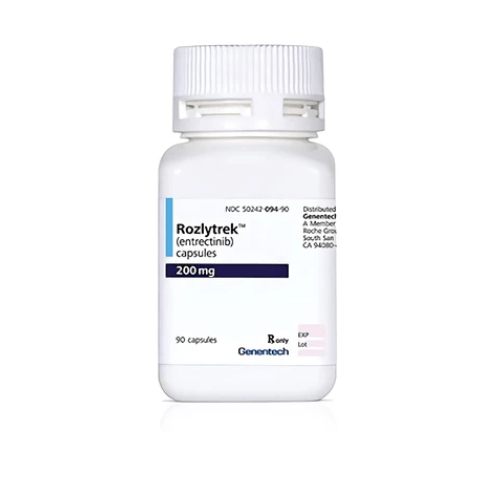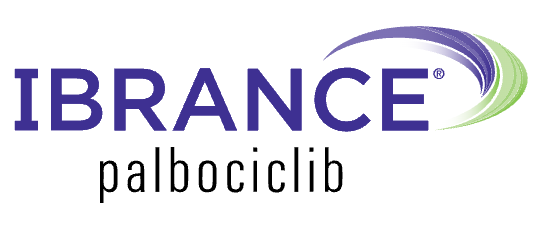
On August 15, 2023, the Food and Drug Administration (FDA) granted accelerated approval to Entrectinib (Rozlytrek), marking a significant milestone in the field of oncology. This approval broadens the treatment landscape for patients with specific genetic alterations, irrespective of their type of solid tumor. Entrectinib is the third cancer drug to receive FDA approval for a “tissue-agnostic” indication, targeting tumors with specific genetic features rather than their histological origin.
A Targeted Approach of Entrectinib
Entrectinib is a targeted therapy designed to combat cancer growth by blocking the activity of TRK fusion proteins. This medication is indicated for adults and adolescents aged 12 or older with solid tumors resulting from fusing one of the three NTRK genes with another gene. The approval extends to patients with metastatic cancer that have progressed after systemic treatment or locally advanced cancer that cannot be surgically removed and for whom no other effective treatment options are available.
Warning And Precaution
Entrectinib requires precautions to address potential health risks. These include monitoring left ventricular ejection fraction for congestive heart failure, assessing and managing central nervous system effects, promptly evaluating skeletal fractures, monitoring liver function for hepatotoxicity, assessing and treating hyperuricemia, monitoring QT interval prolongation, suspending treatment for vision disorders, and advising contraception due to the potential risk of embryo-fetal harm. These precautions aim to ensure the safe and effective use of Entrectinib in patients with cancer.
Addressing Side Effects
The potential side effects accompanied Entrectinib approval. Clinical trials most serious side effects included congestive heart failure, central nervous system effects like cognitive impairment and dizziness, and bone fractures. However, most cases of congestive heart failure resolved after treatment interruption and initiation of other heart failure medications. It is worth noting that Entrectinib targets multiple proteins, potentially explaining its association with heart failure.
Choice of Treatment
Entrectinib’s approval offers patients and their healthcare providers an additional treatment option, potentially enabling a choice between different therapies. For those with NTRK fusions, larotrectinib is another approved treatment, and the choice may depend on factors such as the patient’s age and cancer type. Additionally, Entrectinib and larotrectinib have different side effect profiles, further influencing decision-making. For patients with NSCLC harboring ROS1 fusions, Entrectinib now presents an alternative to crizotinib. The available form of the medicine is capsule with the dosage of Entrectinib 200mg, and 100mg.
Identifying Rare Genetic Alterations
NTRK and ROS1 gene fusions are relatively rare, occurring in about 1% of patients with solid tumors and NSCLC. However, in certain tumor types, the prevalence of NTRK fusions is nearly 100%. Next-generation sequencing is the gold standard for detecting these fusions, underscoring the need for comprehensive genetic testing to identify potential treatment options.
Conclusion
The FDA’s accelerated approval of Entrectinib represents a significant advancement in cancer treatment. Granting approval based on genetic alterations rather than tumor type opens up new avenues for personalized therapy. This pioneering approach offers hope to patients with limited treatment options and underscores the importance of widespread genetic testing to identify rare genetic alterations. As the field of oncology continues to evolve, tissue-agnostic therapies will likely play an increasingly crucial role in improving the lives of cancer patients. Entrectinib price in India depends on the product requirement. Request more details by contacting our Patient Support Team at (+91) 9315705373 or help@sansfro.com.
Reference:
- https://www.accessdata.fda.gov/drugsatfda_docs/label/2019/212725s000lbl.pdf
- https://www.fda.gov/drugs/resources-information-approved-drugs/fda-approves-entrectinib-ntrk-solid-tumors-and-ros-1-nsclc
- https://www.ncbi.nlm.nih.gov/pmc/articles/PMC8149347/
- https://www.thelancet.com/journals/lanonc/article/PIIS1470-2045(19)30690-4/fulltext



